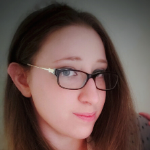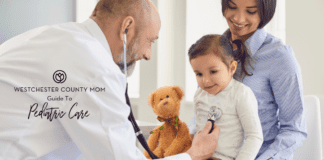

When I was pregnant, I often had people ask me, “What type of parent are you going to be?” What they really meant was, “What kind of parenting philosophy do you ascribe to?” We often hear these terms thrown around, both in social settings and in the media. Attachment parenting. Free-range parenting. And so on.
I am in the process of obtaining a Ph.D. in cognitive research and have a professional background in education. During my undergraduate degree, we often discussed the dimensions of caregiving and how they aligned with parenting styles described by researchers such as Diana Baumrind and Maccoby and Martin. (For those looking for a nontechnical discussion, Bright Horizons offers a thorough article discussing the topic. For those looking for a more thorough and technical review, an article by Thomas Power (2013) would suffice, though there are a great many studies, reviews, books, and textbook chapters on the topic).
Among these is the authoritative caregiving style, which is high on dimensions of responsiveness and expectations. Basically, that means authoritative caregivers are warm, nurturing, and set clear and consistent boundaries. Don’t confuse this with authoritarian caregiving, which is high on expectations and low on responsiveness/warmth. I usually describe myself as authoritative, despite it lacking the neat box and shiny literature that many other parenting philosophies have. But given my involvement in the field of science, I describe myself another way. Evidence-based.
But what do I mean when I call myself this? It means I look to the experts for guidance. The American Academy of Pediatrics offers guidelines in most areas of child-rearing and are research-based. Their parents’ portal, Healthy Children, is one of my favorite resources for accessible information. Guidance from the American Academy of Pediatrics is based on cumulative research conducted by experts in their respective fields. I also like the CDC’s webpage, and many children’s hospitals also maintain good reference sources for parents.
Of course, as a scientist, I also do literature reviews myself. That said, I only do so in disciplines I am truly qualified to interpret data from and rely on evidence accumulated across multiple studies, over numerous years, for guidance. I am always asking myself, “What does the data say,” instead of, “What is my opinion?”
Anecdotes offer all sorts of information, but as scientists (and, I’m told, attorneys) like to say, correlation does not equal causation. Research controls for a great many variables, allowing me to draw conclusions that will be much more generalizable and accurate than relying on a few friends’ personal experiences.
It also means I am flexible. When faced with evidence contrary to my point of view, I am receptive to change. This is how science works, and it is how I operate as a parent (well, most of the time. I am human… and a stubborn human at that!). I live my life as a constant scholar, and that includes remaining open to learning more about how to be an effective parent. I don’t have all the answers.
Being an evidence-based parent means that I understand I am the expert in my child as an individual (until my child is old enough to be their own expert), raising my child to be healthy and safe is a group effort. I look to teachers for their expertise in educating my child, psychologists for information on social, emotional, and cognitive development, and medical practitioners for medical issues. Of course, given my profession, I do technically have expertise in child cognitive development. But I am only one person. Therefore, I still look to others, because the more experts agree with a given method, the better. That said, when it comes to community resources, I look to other parents in my area. Who better to tell me what amazing, fun, educational activities there are out there than other parents and kids near me?!
So, yes, I go on Facebook and ask questions from other parents. And I don’t always ask them in an evidence-based parenting group, though I am a member of quite a few. Something that statistics lack is an understanding of nuance and individuality. By definition, science is about generalization. This does not mean that science doesn’t have its place, of course. But what it does mean is that I don’t expect science to make all the decisions, nor give me all the information.
What type of toy will my child like at a given age? What are the best ways to fly with a toddler with food allergies? How do I enroll my child in kindergarten? What is your favorite cup to transition from nursing or a bottle? Of course, there are plenty of resources about these topics, and research can tell me what kinds of toys are developmentally appropriate, the safest way to avoid cross-contamination, the optimal age to begin kindergarten or the age at which cup introduction can begin. But social media and parenting groups are an excellent resource for these types of questions because they are about opinion and experience. Therefore, a final point about being an evidence-based parent, is it means I am selective in who and where I ask for specific types of information. It is about discretion.
I could go on, but let’s be honest; you didn’t click on this post to read a book. So, in summary, as an evidence-based parent, I look to the experts, rely on research, remain open-minded and flexible in my approach, and know when science does and does not offer the information I’m seeking. It may not be as glamorous as some other parenting philosophies, but as a scientist and a mom, it works for me.























Erin so proud of you. You should be proud of all you thard earned accomplishments. God bless you always. Geri
Comments are closed.